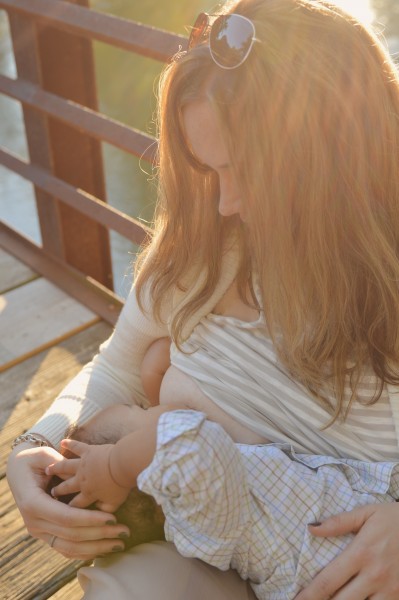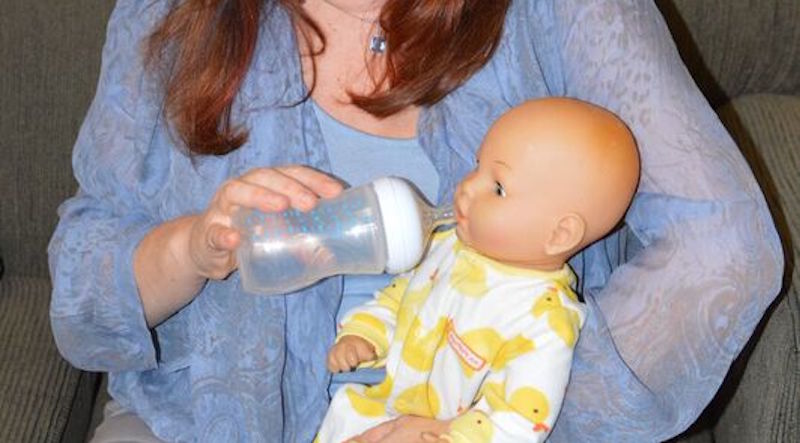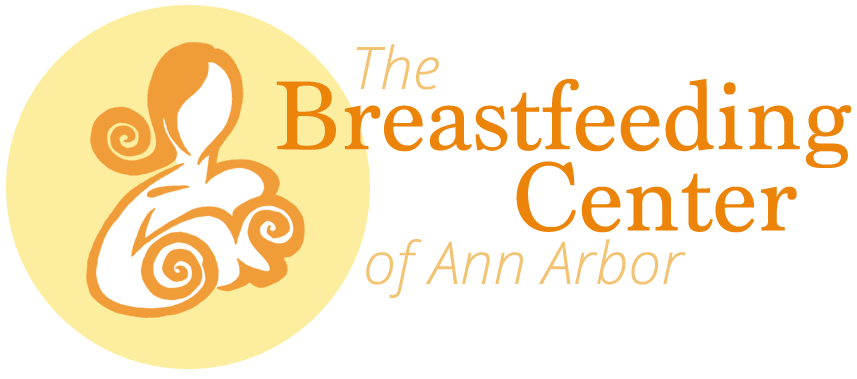Bottle Feeding Help
Our Gift to You: a FREE Infant Feeding Calculator
Bottle feeding help?  How can you make bottle feeding and breastfeeding work well together? Keep breast feeding the baby on demand when you are home with them! Use paced bottle feeding. We have videos to show you how to do this as well. Scroll down on that page to see examples of paced bottle feeding.
How can you make bottle feeding and breastfeeding work well together? Keep breast feeding the baby on demand when you are home with them! Use paced bottle feeding. We have videos to show you how to do this as well. Scroll down on that page to see examples of paced bottle feeding.
There are so many questions though! Here are some examples:
Question: Which bottle should I use?
Answer: We are not sure! It seems as though using a slow flow nipple with a wide base might be best. We are not a big fan of “fancy” bottles and nipples. It seems as though how you bottle feed is more important than the actual bottle shape.
Question: What about nipple confusion? How should you give a bottle?
Answer: We now think that babies actually develop flow preference, not nipple confusion. If the baby needs to just swallow and do no work and if they get to eat really, really fast while bottle feeding, they may lack the patience for breastfeeding. Paced bottle feeding! seems to be the key!
Question: What about swallowing too much air in when you use paced bottle feeding?
Answer: You swallow far more air while gulping than while sipping. Paced bottle feeding let’s you sip instead of gulp!
Question: How long can I store breast milk?
Answer: The rule of the thumb is about 6 hours at room temperature, 6 days in the refrigerator, and 6 months in the freezer. If you are worried about your breastmilk being fresh, sniff it! We all know what spoiled milk smells like!
This next section answers many of the most commonly asked questions, how much should be in each bottle? How many bottles does the baby need? How much should a baby eat in 24 hours?
The baby only needs about 2.5 oz per lb of their weight per 24 hours up until they reach about 10ish pounds. This amount of total intake does not increase after about 25-30 oz!
Really! This is true! Whether they are breast feeding, breast milk feeding, or shockingly, formula feeding! If you are feeding your baby more than 30ish oz per 24 hours, you might want to think about paced bottle feeding really hard. Research says if you feed too fast, you are setting the baby up for over eating and obesity later in life.
If your baby is little and you are needing to supplement, take the baby’s weight in pounds and multiply that number by 2.5 oz to get a total amount of food needed for 24 hours.
For example, a 6 lb baby needs to eat about 15 oz per 24 hours. 6 X 2.5 = 15. If the baby eats about 10 times per 24 hours, they would need about 1.5 oz in each bottle.
Make sense? However, we always listen to hunger cues as our bottom line. If we use paced bottle feeding and the baby seems to want a little bit more, give it to them! Have weight checks every few weeks to make sure your baby is gaining about 1 oz per 24 hours for the first four months and about 1/2 an ounce per 24 hours after four months.
Our Gift to You: a FREE Infant Feeding Calculator
To see all the calculations for babies and bottles, click on the button and get a download of our free infant feeding calculator!
 How Much Do You Feed Your Baby When You are Away?
How Much Do You Feed Your Baby When You are Away?
People often ask, how many bottles does a baby need and how much do you put in the bottle for each feed? First of all, calculate how many oz does the baby need in 24 hours. As stated, babies need about 2.5 oz per lb of their weight per 24 hours. This amount of total intake does not increase after about 28-30 oz.
Count how many feedings a day does in total does your baby have when you are home with him for a full day. Divide 28 oz by that number. That is about the number of oz they will need per feed in each bottle.
Count how many breastfeeds the baby will miss while you are gone. This is about how many bottles the baby will need. Consider making several small bottles instead of a few large bottles. Most babies will eat 2-3.5 oz per feed. If your baby is eating more than 5 oz per feed, they are most likely eating too much at a time. Go back to Paced Bottle Feeding. Try replacing the nipple. Your old nipple may have gotten too stretched.
Feeding calculator:
28 oz divided by # of feeding per day roughly = how much in each bottle
# of feeds the baby will miss = # of bottles to send.
Remember, these are rough calculations. Please send a few 1 oz bottles in case the baby needs a bit more food at a particular feed.
